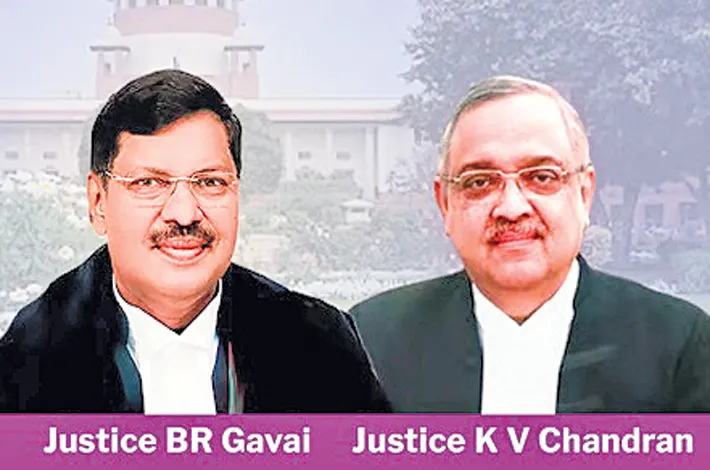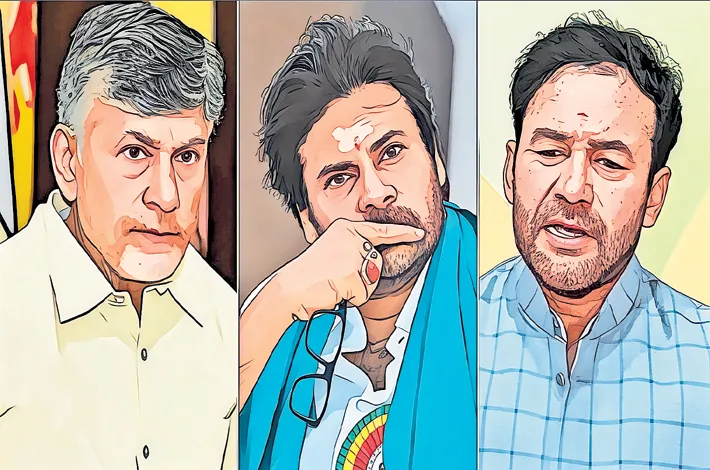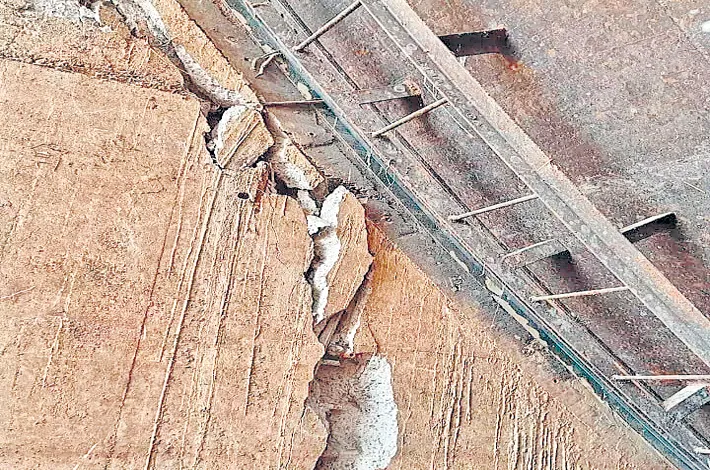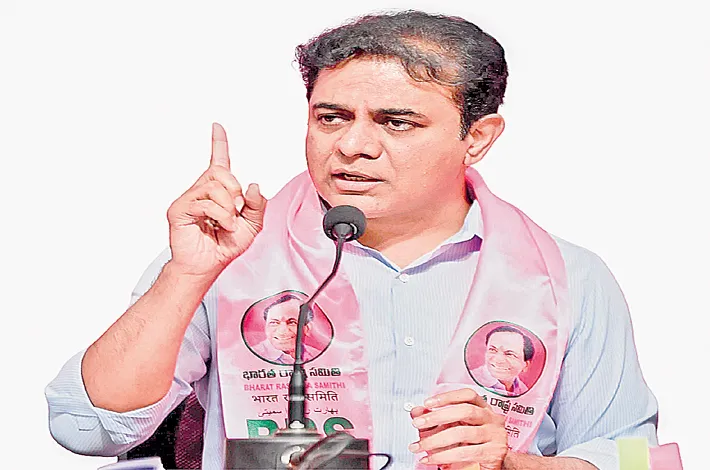Supreme Court Rejects ED Plea in MUDA Case
22-07-2025 12:00:00 AM

SC Slams Agency for Political Misuse
metro india news I hyderabad
In a landmark ruling, the Supreme Court of India dismissed an appeal by the Enforcement Directorate (ED) challenging a Karnataka High Court order that quashed summons issued to B.M. Parvathi, wife of Karnataka Chief Minister Siddaramaiah, and State Urban Development Minister Byrathi Suresh in the Mysuru Urban Development Authority (MUDA) land allotment case.
The decision, delivered by a bench comprising Chief Justice of India BR Gavai and Justice K Vinod Chandran, not only upheld the High Court’s ruling but also issued a sharp rebuke to the ED, questioning its role in what the court described as “political battles.” The verdict has sparked a heated debate about the independence of central investigative agencies and their alleged misuse for political vendetta, particularly by the ruling Bharatiya Janata Party (BJP).
The case revolves around allegations of irregularities in the allocation of compensatory sites by MUDA to Parvathi. According to the complaint, Parvathi was “gifted” a 3.2-acre parcel of land by her brother, Mallikarjunaswamy, in 2010. After MUDA acquired the land, Parvathi sought compensation and was allotted 14 plots in an upmarket area of Mysuru, reportedly worth more than the original land. Opposition parties, led by the BJP and Janata Dal (Secular) (JD(S)), alleged that the allotments were illegal and part of a larger scam potentially worth Rs 3,000 crore to Rs 4,000 crore. The ED issued summons to Parvathi and Suresh, prompting the Karnataka High Court to intervene in March 2025, quashing the summons as “unsustainable.”
The Supreme Court’s dismissal of the ED’s appeal was accompanied by pointed remarks about the agency’s conduct. “Let political battles be fought amongst the electorate. Why are you being used for it?” Chief Justice Gavai asked Additional Solicitor General S.V. Raju, representing the ED. The bench expressed concern over the agency’s involvement in politically sensitive cases, with Gavai referencing his experience in Maharashtra, hinting at a pattern of misuse. “Please don’t compel us to open our mouths. Otherwise, we will be forced to make some harsh comments about the ED,” Gavai warned, signaling the court’s frustration with what it perceived as the agency’s overreach.
The court found no error in the Karnataka High Court’s reasoning, stating, “We do not find any error in the reasoning adopted by the single judge. In the peculiar facts and circumstances, we dismiss the appeal.” In a lighter tone, the bench thanked Raju for “saving some harsh comments” after he offered to withdraw the plea, though the court proceeded to formally reject it. The ruling reaffirmed the High Court’s decision to halt the ED’s investigation into Parvathi and Suresh, offering significant relief to Siddaramaiah, who is already navigating a leadership tussle with his deputy, D.K. Shivakumar.
Karnataka Chief Minister Siddaramaiah hailed the verdict as a “resounding slap of justice on the face of the Central Government.” In a statement posted on X, he accused the BJP and its allies of orchestrating a “political witch-hunt” by misusing constitutional agencies like the ED, Central Bureau of Investigation (CBI), and Income Tax (IT) Department. “For the past 10-11 years, the Central Government and the BJP’s misuse of IT, CBI, and ED for political vendetta has caused suffering to many, and this verdict brings solace to all such victims while instilling confidence in the judicial system,” Siddaramaiah said. He demanded a public apology from BJP and JD(S) leaders in Karnataka, stating, “If they have even a shred of dignity or honor left, they should immediately apologize publicly for their mistakes.”
Congress leader Randeep Singh Surjewala echoed Siddaramaiah’s sentiments, accusing the BJP of manufacturing “false allegations” and using the ED to target the Chief Minister and his family. “Supreme Court today and High Court earlier rejected and quashed the fake propaganda of ED-BJP partnership. Truth has won! Satyamev Jayate,” Surjewala posted on X. Other Congress leaders, including Priyank Kharge, criticized the ED for acting as “puppets of the BJP” in pursuing political vendetta.
The opposition, however, remained defiant. Karnataka BJP chief B.Y. Vijayendra argued that the Supreme Court’s ruling did not absolve Siddaramaiah of the allegations. “The court has not given a clean chit to Siddaramaiah. It only ruled that the ED’s summons were invalid. The charges against him persist, and both Lokayukta and other probes are ongoing,” Vijayendra told reporters. The BJP and JD(S) have long maintained that the MUDA case reflects systemic corruption under Siddaramaiah’s administration, pointing to the Governor’s sanction in August 2024 for a probe into the Chief Minister himself under the Prevention of Corruption Act.
The MUDA case has been a flashpoint in Karnataka’s volatile political landscape. The controversy intensified after the Karnataka Lokayukta, in a report last month, stated there was a “lack of evidence” to pursue criminal charges against Siddaramaiah and his wife. However, the Karnataka High Court’s rejection of Siddaramaiah’s plea against the Governor’s sanction in September 2024 allowed the investigation to continue under the Lokayukta’s purview. Social activist Snehamayi Krishna, one of the complainants, vowed to persist with the legal battle, though he recently decided against escalating the case to the Supreme Court for a CBI probe.
The Supreme Court’s sharp critique of the ED resonates with broader concerns raised by opposition parties across India. Leaders from the Congress, Trinamool Congress, and Aam Aadmi Party have repeatedly accused the BJP of weaponizing federal agencies to target rivals, particularly ahead of elections. The court’s remarks align with this narrative, raising questions about the autonomy of institutions like the ED and CBI. In April 2024, Prime Minister Narendra Modi defended the ED, claiming that only 3% of its cases involve politicians, with the rest targeting “officials and criminals.” However, the opposition argues that high-profile cases against political opponents undermine the agency’s credibility.
The ruling has significant implications for Karnataka’s political dynamics. Siddaramaiah, a veteran Congress leader, has positioned himself as a champion of social justice, accusing the BJP and JD(S) of targeting him for his pro-poor policies. The verdict strengthens his position within the Congress, especially amid speculations of internal rivalries. Deputy Chief Minister D.K. Shivakumar, who has publicly supported Siddaramaiah, dismissed the MUDA allegations as a “political conspiracy” and reiterated that the Chief Minister would emerge “clean” from the ongoing probes.
A
s the dust settles, the Supreme Court’s decision marks a critical moment in the debate over the politicization of investigative agencies in India. By cautioning the ED against being “used” for political battles, the court has underscored the importance of institutional independence and the sanctity of democratic processes. For Siddaramaiah and his family, the ruling offers a reprieve, but with ongoing investigations by the Lokayukta, the MUDA case is far from over. The verdict also serves as a reminder that political battles, as the Sexually explicit content is not allowed in this context. The focus remains on the legal and political ramifications of the Supreme Court’s ruling, which has reinvigorated discussions about governance, accountability, and the rule of law in India.








